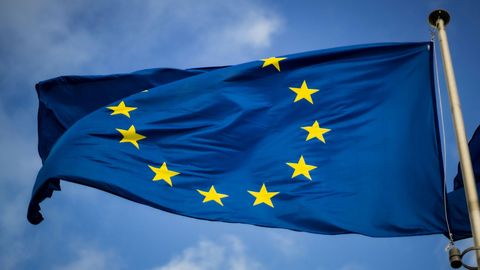Analyses & Studies
UK-EU Relations: Conservative Pragmatism vs. Labour Alignment – A Comparative Analysis of Future Strategies

International trade is currently experiencing unprecedented disruption and uncertainty. Factors such as war, energy security, defence, and ongoing uncertainties surrounding China-US trade relations highlight the importance of maintaining a strong relationship with the European Union (EU) as a key priority for the next government. This article delves into how the Conservative and Labour parties envision the future of UK-EU relations, highlighting their differing strategies and potential impacts on both sides of the Channel.
Conservative Party: Navigating a Pragmatic Path – The Conservative Party’s stance on UK-EU relations has been primarily characterised by the legacy of Brexit. While relations have certainly improved under Prime Minister Sunak their commitment to uphold the Brexit decision remains steadfast. The Windsor Agreement which resolved the issue of Nothern Ireland maintaining the integrity of the UK while managing its special relationship with the EU was seen as a significant step forward in improving relations.
The Conservative party’s international trade policy is focused on maintaining sovereignty and strengthening Britain’s global trading position primarily through bilateral rather than multilateral trade agreements. Several free trade agreements (FTA) have been signed (Japan-UK FTA in 2020, Australia-UK FTA in 2021, and New Zealand-UK FTA in 2022) and we might expect more of the same under a new government. The Trade and Cooperation Agreement (TCA) negotiated by the Conservative government will be reviewed in 2025. There is no declared intention to renegotiate the agreement, but rather to focus on smoothing out existing wrinkles such as trade barriers and regulatory divergences
The party’s strategy includes negotiating additional bespoke agreements in areas such as financial services—a sector in which the UK still seeks equivalence decisions from the EU to facilitate smoother operations across borders.
Labour Party: Advocating for Closer Alignment – The Labour Party proposes a starkly different approach, advocating for a closer relationship with the EU than the current government's stance. Labour leaders have criticised the Conservative government's Brexit deal for creating too many barriers to trade and cooperation, arguing that these have harmed UK businesses and workers. However, the party has ruled out rejoining the Single Market and Customs Union and adopting the Commission’s proposed Youth Mobility Scheme.
Labour's plan includes resolving the Northern Ireland issue by negotiating a new customs arrangement (also known as an SPS agreement) that aims for alignment with the EU Single Market to some degree. The agreement would ease trade – specifically on food and agricultural products, plant and animal health – eliminating the need for health checks and extensive paperwork at the border. With the National Audit Office recently revealing that post-Brexit checks have cost the government £4.7 billion so far, the deal looks like an interesting and cost-effective way to reduce frictions at the border and ease supply chain disruptions in the long term. However, though the EU has stated its interest in striking such a deal, they have made it clear that it would expect London to accept European Court of Justice (ECJ) oversight in return. This latter consideration will prove a challenge for Starmer as this may alienate euro-sceptical voters.
While we expect the mood music of UK-EU relations to improve under a new Labour government it remains to be seen what this would actually mean in practice. We might expect more cooperation on security and environmental issues, emphasising the need to collaborate closely with EU institutions on shared challenges such as climate change, international crime, and data regulation. This could lead to a significant reshaping of the UK-France trade corridor, with heightened cooperation on research and development, digital innovation, and the green economy.
In summary, both parties acknowledge the necessity of a good relationship with the EU to address trade and common challenges like defence and climate change. The Conservative approach tends to favour bilateral negotiations to address specific issues as they arise, while Labour may be more inclined towards multilateral frameworks
The Conservatives have prioritised international trade deals outside of the EU to signal the UK’s broader global ambitions. However, there remains an intrinsic focus on smoothing relations with the EU. Conversely, Labour’s strategy involves re-engaging with the EU in more structured and possibly formalised ways, potentially rejoining certain EU programmes and agencies that they argue benefit the UK, such as Erasmus+.
As the UK continues to redefine its global international and regional relationships, the direction taken will significantly depend on domestic political outcomes. The UK's future relationship with the EU under Conservative or Labour rule will have profound implications, not only for trade but for a broad spectrum of issues including security, environmental policy, and migration. While the Conservatives promote a vision of an independent yet cooperative UK, Labour pushes for greater alignment and partnership.
The French Chamber of Commerce actively engages the Commission through the EU delegation to the United Kingdom. Members are offered an opportunity to speak directly with EU officials to be included in the debate through a quarterly call with the delegation. If you are interested in joining our next call, contact cpennetier@ccfgb.co.uk